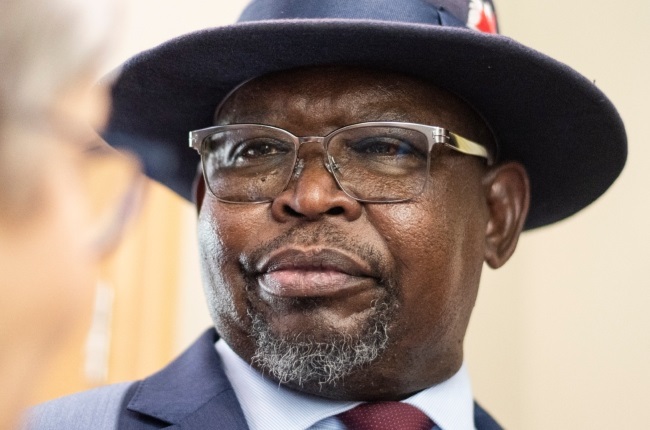
The South African economy is still in the doldrums, and for the average citizen, things are likely to get worse before they get better.
This was roughly the message contained in Finance Minister Enoch Gondogwana’s Budget Speech on 21 February 2024.
The National Treasury’s 2024 Budget Speech can be a complex blend of figures and forecasts that many South Africans struggle to understand.
To simplify the financial jargon into understandable, actionable insights, Mathapelo Sipamla, Head of Agency Distribution at Sanlam, sheds light on how the Budget Speech could impact your pocket.
There are five key messages that consumers need to think about in relation to their personal financial planning from Gondogwana’s 2024 Budget, she says.
- FUEL LEVY
Godongwana announced that there would be no increases to the general fuel levy.
This is a relief for many South Africans, says Mathapelo, considering the already high cost of living and impact fuel prices have on food and transport costs.
“The Finance Minister’s decision is significant considering the rising living costs and economic challenges that burden so many households. This financial relief is an opportunity for South Africans to stretch their personal budgets even further by considering strategies to pay off debt and save.”
She recommends consumers purchase groceries in bulk and plan meals for the week to enjoy the benefits of this reprieve.
"This reduces the frequency of trips to the store and helps cut fuel and food costs. Also, consider joining a lift club with colleagues or neighbours to cut the cost of commuting."
Read more | Life for robbers who used bystander as a human shield in shootout
- SOCIAL GRANTS
The social grant increase might not stretch your monthly budget, Mathapelo cautions.
The Finance Minister has announced increases in social grants to support the nation’s most vulnerable populations. The increases, she explains, include:
- An increase of R100 to the old age, war veterans, disability, and care dependency grants. This amount will be divided into R90 effective from April, and R10 effective October.
- A R50 increase to the foster care grant.
- A R20 increase to the child support grant.
“While these increases are welcome, the real-world impact is modest. The increase may not significantly alleviate households' financial pressures. That’s why beneficiaries should manage these funds more cautiously to ensure they can afford essential needs without incurring more debt.”
She suggests that households dependent on the grants create a spending plan to stretch their increased income further amid rising living costs.
- THE TWO-POT SYSTEM
Mathapelo explains that the two-pot retirement system aims to empower more South Africans to preserve their retirement savings when they leave or change jobs through controlled access to a portion of their savings during financially challenging times.
“To do this, from 1 September 2024 government will divide retirement funds into two components. (1) A retirement component, which you cannot touch until retirement. (2) A savings component from which members can make limited withdrawals before retirement. All the savings that accumulated in your retirement fund up until 31 August 2024 will go into the vested component and cannot be touched until retirement.
Mathapelo encourages consumers to speak to a financial adviser to help them create a balanced saving, spending, and investing strategy to navigate the new system. "An adviser can also show the long-term consequences of withdrawing early on one’s future retirement income."
Read more | Dr Nandipha ‘snubs’ Thabo Bester
- DEBT
As a country, South Africa relies heavily on debt, the financial expert reflects.
"This year, the Finance Minister estimates that the gap between how much money the government makes and how much it spends (this gap is called a budget deficit) will worsen from 4% to 4.9%," Mathapelo explains.
“The government may need to borrow more (this year)," says Mathapelo.
“This could make it harder for South Africans to manage their debt, because of:
- "Higher interest rates/repayments for loans and bonds.
- “Reduced public services, such as healthcare, education, and social services.
“Thankfully, the Finance Minister also announced that the government will not implement any major tax increases, relieving cash-strapped South Africans.
“Despite this relief, households should still be mindful of taking on more debt and focus on paying off existing debt as quickly as possible.
“The Finance Minister is constantly trying to balance the country’s income with its expenses, and most South Africans are in a similar situation. Households should try to pay off the smallest debts first, to free up their pockets to tackle the bigger amounts. This is known as the snowball method.”
“The 2024 Budget Speech," Mathapelo concludes, "presents challenges and opportunities for households, especially those dealing with debt.
"So, South Africans must understand its implications for effective financial planning and debt management.”
- ECD SUBSIDY VALUE DECLINES IN REAL TERMS
According to Real Reform for ECD (RR4ECD), a broad-based alliance advocating for holistic, well-funded, inclusive, and quality early childhood development (ECD) services in SA, the 2024 Budget Speech shows how government is failing young children.
"It's a setback for children’s rights, as the early childhood development subsidy remains pegged at R17 per child per day, for sixth year in a row," the ECD alliance tells Drum.
“Despite the President’s signalling of early childhood development (ECD) as a key priority in his State of the Nation Address, the 2024 budget failed to allocate the funds necessary to fulfil all children’s rights to quality ECD services – compromising their lifelong prospects and the future prosperity of South Africa as a whole.
“The ECD sector is beset by chronic underfunding, inadequate infrastructure, low wages and poor working conditions. Only a third of 3-5-year-olds have access to an ECD programme. Of those that do, 57% fail to 'Thrive By Five', starting school on the back foot as a result of inadequate nutrition and delayed physical and cognitive development.”
Political parties have also voiced their displeasure with the 2024 Budget Speech, with Rise Mzansi characterising it as a sign that "people are paying for 15 years of poor leadership and corruption".
"To show how little appetite the ANC government has in investing on the future, it has allocated a miserable R1.6bn to R2bn over the next three years to the early childhood development grant, while granting R11.6b to department of health employees in the same," says Rise Mzansi national leader Songezo Zibi, echoing the RR4ECD's sentiments.
"The ANC now oversees a stagnant economy, high unemployment, spiralling government debt, falling tax revenues and sops to key constituencies for the sake of election while things fall apart. Economic growth for 2023 will come in at 0.8%, a far cry from the 5.4% promised by the National Development Plan at the beginning of the 15 Wasted Years."



















